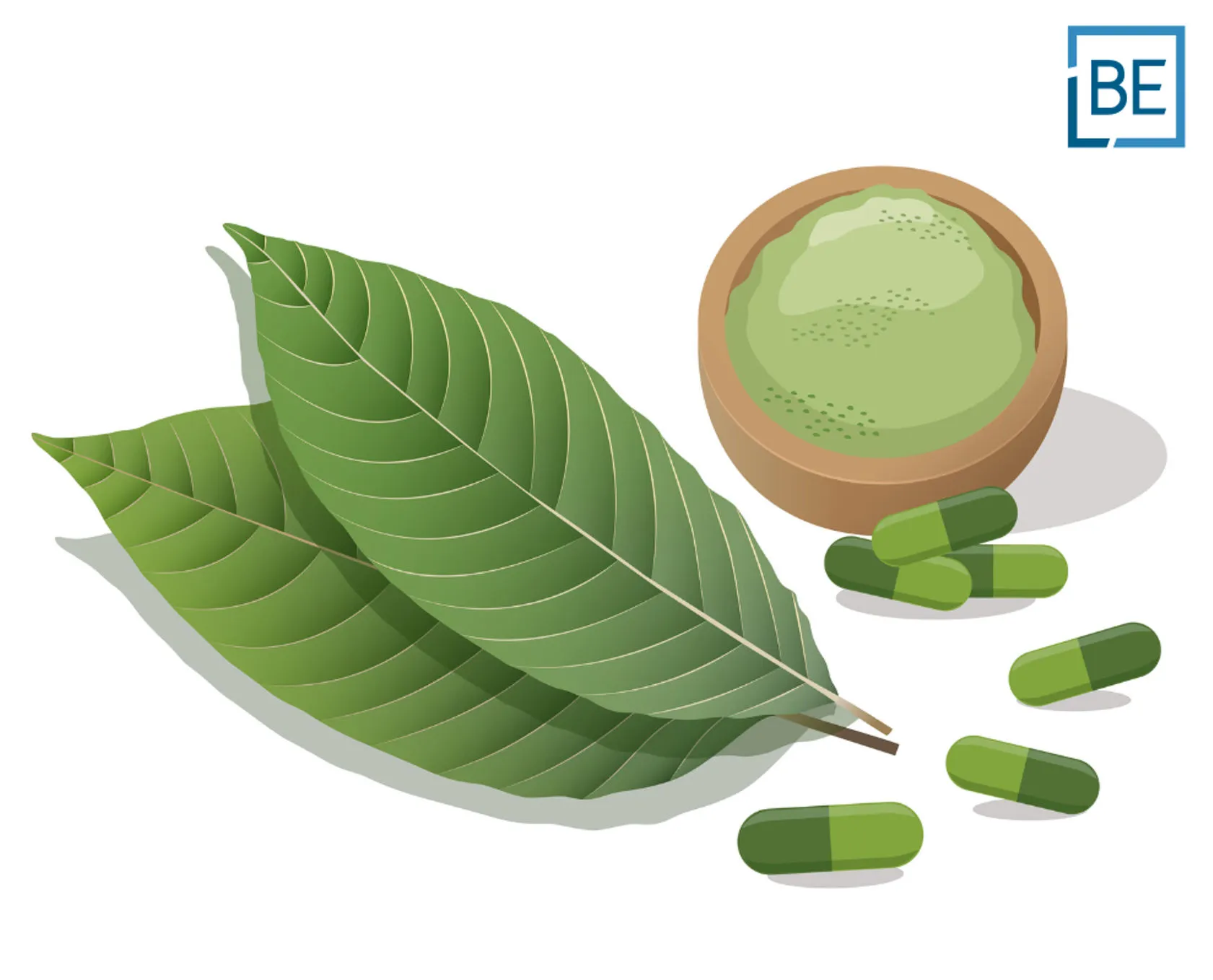Incorporation
Is Kratom Legal in Thailand? 2025 Guide & Rules
Following the decriminalization of Kratom (Mitragyna Speciosa) in 2021 and the enactment of the Kratom Plant Act in 2022, the Thai government has legalized the use, sale, and consumption of Kratom. By doing so Thailand has introduced economic and medicinal opportunities for businesses to explore.
On September 4, 2024, the Thai FDA issued detailed guidelines for using Kratom in food supplements and herbal products. These regulations outline manufacturing, labeling, and distribution standards, offering businesses a clear framework to safely develop and expand within Thailand’s Kratom market.
In this blog, we’ll explore the key aspects of Thailand’s Kratom regulations and the opportunities they present for businesses.
Key points
- In 2021 and 2022, Thailand decriminalized Kratom and passed legislation (Kratom Plant Act) to regulate its production, sale, and use as a food and herbal product.
- New Thai FDA guidelines (September 2024) specify strict requirements for Kratom containing food supplements, including maximum daily mitragynine limits and mandatory good manufacturing practices (GMP).
- Kratom products cannot be sold to individuals under 18, pregnant or breastfeeding women, and are prohibited in certain locations like educational institutions and parks.
- Businesses must obtain proper licensing for importing, exporting.
- Product labelling must include clear warnings about usage limitations, such as not consuming continuously for more than seven days and avoiding combination with alcohol or other Kratom products.
Is Kratom Legal in Thailand?
In 2021, Thailand updated the Narcotics Act (No. 8) B.E. 2564 (2021). As part of this update, Kratom (Mitragyna Speciosa), was removed from the list of prohibited substances. This amendment also decriminalised Kratom related offences such as the consumption and possession of Kratom.
On August 27, 2022, the Kratom Plant Act B.E. 2565 (2022) came into effect. This act has been designed to encourage economic activity related to Kratom, by regulating the trade, sale, consumption, study, and advertising of Kratom leaves (alone or as an ingredient in food) in Thailand.
In an effort to further clarify the regulations relating to Kratom in Thailand, the Thai FDA issued new guidelines on September 4, 2024. These guidelines focus on the use of powdered Kratom leaves and extracts as ingredients in dietary supplements, which was previously not possible under the old regulations.
What do the New Guidelines Say?
The new guidelines from the FDA provide clarification on using Kratom as an ingredient in food products and as a herbal product on its own.
Using Kratom as an Ingredient in Food
Food Supplement Specification and Standards
Any food supplements that contain powdered Kratom leaves or Kratom leaf extracts must not have a dosage that exceed:
- 0.2 mg/day of mitragynine (including 7-hydroxymitraglynine, which may occur naturally), or;
- 1 mg/day for food supplements containing Kratom extracts that use water as a solvent. The addition of 7-hydroxymitraglynine to food supplements is expressly prohibited.
Another key consideration is that the food supplement product must be produced and in a ready-to-eat form (e.g., liquid, gel, tablet, or capsule).
If powdered Kratom leaves or Kratom leaf extracts are used as ingredients in any other types of food categories (other than food supplements), the manufacturer must conduct a safety assessment prior to beginning production.
Manufacturing Requirements
When manufacturing dietary supplements containing Kratom, the factories of locations used for producing the product must comply with good manufacturing practice (GMP) standards, as specified in the annex to the Ministry of Public Health Announcement (No. 420) B.E. 2563 (2020) Re: Food Production Processes, Processing Equipment/Utensils and Storage Practices.
The GMP applies to all food production premises that manufacture food for sale, excluding certain small-scale operations like street vendors or private kitchens unless they produce specifically controlled foods.
| 1. Location and Facility |
|
| 2. Equipment and Utensils |
|
| 3. Process Control |
|
| 4. Sanitation |
|
| 5. Personal Hygiene |
|
Label and Warning Statement Requirements
The labels for any food supplements that contain powdered Kratom leaves or Kratom leaf extracts must comply with the Notification of the Ministry of Public Health Re: Labeling and Food Supplement Products and must display the following:
- Must not be consumed continuously for more than seven days.
- Do not use this product in conjunction with other products containing Kratom.
- Must not be consumed with products containing alcohol.
Additionally, the label must contain statements regarding prohibited use for high-risk consumers. For example, products must not be used in patients with cardiovascular diseases, diabetes, or psychiatric disorders.
Approval Process
To receive approval for the production of food supplements or products containing powdered Kratom leaves and Kratom leaf extracts can be made online through the Thai FDA’s e-submission system.
Applicants must include the following:
- product specifications, standards, and conditions of use
- a laboratory report stating the mitragynine content must be provided to the Thai FDA during the product registration process.
- For imported products, a certificate on the food standards of the manufacturing practices of the overseas manufacturer is required.
Using Kratom as a Herbal Product
Under the new notification, Kratom can now be used as a herbal product under the Thai FDA’s Herbal Product Division. The requirements for using Kratom as a herbal product include:
Product specifications and standards
Kratom used in herbal products must follow strict quality and purity standards. Kratom based herbal products must complete thorough testing for contaminants and receive verification of active ingredient concentrations.
For Kratom leaf concentrates extracted using water and Kratom leaf aqueous solutions, the guidelines specify that the amount of Mitragynine must not exceed one milligram per day.
Labeling, Leaflets, and Packaging Requirements
Herbal products are required to feature clear and informative labels that provide the following information:
- dosage instructions,
- potential side effects, and
- contraindications.
Approval Process
The approval process for herbal products requires submitting an application to the Herbal Product Division, which must include product samples, safety data, and proof of efficacy. Applicants are expected to provide comprehensive documentation demonstrating that the product is safe for use and substantiating the claimed health benefits.
What does this Mean for the Kratom Market in Thailand?
The approval of Kratom for use as a food or herbal product introduces new business opportunities for both local and international businesses. In Thailand, despite Kratom being legal for a couple of years, the number of approved Kratom products on the market remains relatively low. These new guidelines provide an opportunity for businesses to expand their activities and develop the Kratom market further.
What Other Kratom Related Business Activities Can I Do?
Importing and Exporting Kratom leaves
The Kratom Plant Act states that importing and exporting Kratom leaves without obtaining a licence from the secretary-general of the Narcotics Control Board (NCB) is prohibited.
The following groups are eligible to receive a licence from the NCB:
- Thai nationals over twenty years old and residing in Thailand;
- Juristic persons registered under Thai law;
- Community enterprises under the law; and
- Government agencies.
Once granted, a licence is valid for five years. It is important to note that even though a licence has been granted, importers and exporters must still notify the NCB when importing or exporting Kratom leaves.
However, taking Kratom leaves in and out of Thailand for personal consumption, therapy, and treatment of an illness would be exempted from the requirements mentioned above. Any Kratom leaves taken for international travel must be in accordance with the allowance specified in any relevant ministerial regulations. Should the amount of the Kratom leaves exceed this allowance, it will be considered importing or exporting Kratom leaves, which would be subject to the licensing requirements.
Should some be found in violation of these requirements, they would be subject to imprisonment for up to one year, a maximum fine of THB 100,000, or both.
Selling Kratom
The Kratom Plant Act facilitates the sale of Kratom leaves alone or as an ingredient in food, subject to certain conditions. The following activities are considered as ‘selling’ under the act:
- selling,
- dispensing,
- distributing,
- exchanging,
- or giving the substance to others.
The Kratom Plant Act prohibits the sale of Kratom leaves (or food that contains Kratom leaves as an ingredient) to:
- anyone under 18 years old, and
- pregnant or breastfeeding women.
The Kratom Plant Act also allows the Ministry of Justice and the Ministry of Public Health to prohibit selling Kratom to additional persons at a later date.
Any one who sells Kratom must post an announcement at their place of sale (including electronic points of sale) stating that the groups listed above are prohibited from purchasing Kratom. Anyone caught selling Kratom to these groups or failing to post the required announcement or notice could be subject to a fine of up to THB 30,000.
Please note that selling Kratom to the restricted groups above may be allowed only if done for medical or educational purposes. Medical or educational purposes are defined as follows:
- Treatment of disease, therapy, or relief of illness under the supervision of a medical practitioner, dental practitioner, Thai traditional medicine practitioner, or traditional medical professional under the law related to the Thai traditional medical profession; or
- Study, analysis, or research carried out by a government agency that is responsible for conducting medical, pharmaceutical, or scientific research or education, or providing medical, pharmaceutical, or scientific services for the benefit of medical or pharmaceutical, Thai Red Cross Society, or educational institutions.
Are there any other restrictions to selling Kratom?
In additional to the restrictions listed above, it is also prohibited to sell Kratom in the following locations:
- educational institutions,
- dormitories,
- parks,
- zoos,
- amusement parks,
- vending machines,
- or other places specified in announcements by ministers of the Ministry of Justice and the Ministry of Public Health.
Should anyone be caught selling Kratom in these locations, they may be subject to a fine of up to THB 50,000, and up to twice that (i.e., THB 100,000) if the sale is to one of the prohibited parties mentioned above.
While the consumption of Kratom is now legal, it is still prohibited to consume Kratom leaves mixed with narcotic drugs, psychotropic substances, dangerous substances, or any other substance specified by the Ministry of Justice. The exception to this being when done for the specific medical or education purposes given above. Any violation of these is subject to a maximum fine of THB 50,000.
Advertising
The Kratom Plant Act also contains regulations for the advertisement of Kratom in Thailand. Under the Act, the advertising or promotion of the consumption of Kratom leaves mixed with narcotics or psychotropic substances, drugs and dangerous substances, or other designated substances is prohibited. This regulation covers advertisements or any type of marketing communications such as:
- public relations,
- news,
- publishing promotion,
- point-of-sale displays,
- direct marketing,
- sales,
- and online or computer advertising.
Any form of advertising or promotion which violates the Act is subject to imprisonment for a period of up to two years, a maximum fine of THB 200,000, or both.
Furthermore, anyone or any advertising/promotion that aims to convince others (including “encouraging, deceiving, intimidating, improperly influencing, or forcing”) to consume Kratom leaves mixed with narcotic drugs, psychotropic substances, dangerous substances, or other designated substances is also prohibited. Violations of this are subject to imprisonment for up to one year, a maximum fine of THB 100,000, or both.
The penalties for both activities mentioned can be doubled if the violation is committed against persons under age 18, pregnant or breastfeeding women, or any other person designated by the Ministry of Justice or the Ministry of Public Health, for a maximum sentence of imprisonment for two years and a fine of THB 200,000.
Can a Foreigner 100% Own a Kratom Business?
Kratom businesses can only be undertaken by a Thai company (a company registered in Thailand with Thai shareholder(s) owning more than 50% of the share capital).
The Thai government has imposed these restrictions to safeguard local businesses against foreign entities with greater resources and access to modern technology. The regulations aim to prevent a large number of foreign players from entering and dominating the market.
Additionally, several activities, such as selling food and beverages, are already subject to the restrictions of the Foreign Business Act (FBA). For more information about the FBA, please see our blog post here:
Therefore, with the restrictions of the Foreign Business Act, Kratom businesses can only be undertaken by a Thai company (a company registered in Thailand with Thai shareholder(s) owning more than 50% of the share capital). The Thai shareholder must not be a nominee as the Foreign Business Act prohibits the use of Thai shareholder nominees.
A nominee shareholder can be described as an individual who:
Lacks genuine interest in the business.
Has made no significant investment in the company.
Lacks the financial means and skills to be a legitimate partner.
Exists solely to facilitate foreign participation in restricted businesses.
For instance, appointing an unskilled Thai worker with a modest income as a majority shareholder in a company with substantial registered capital while simultaneously denying them voting and dividend rights would be considered as using a nominee shareholder.
A private limited company that has been properly structured is the most common business type for a Kratom business. For more information about Thai limited companies, please see:
How can Belaws help?
For more information about Kratom businesses in Thailand, why not talk to one of our experts now?
Please note that this article is for information purposes only and does not constitute legal advice.
Our consultations last for a period of up to 1 hour and are conducted by expert Lawyers who are fluent in English, French and Thai.
Consultations can be hosted via WhatsApp or Video Conferencing software for your convenience. A consultation with one of our legal experts about your company registration is undoubtedly the best way to get all the information you need and answer any questions you may have about your new business or project.
USD 150
Up to 1 hour
Online payment (Paypal or Credit card)
Legal consultation can be conducted in English, French or Thai
Legal consultations are handled by experienced lawyers from the relevant fields of practice
FAQ About Kratom Legalisation
Kratom in Thailand is legal but what about this special mix called 4X100?
Yes, Kratom itself is legal in Thailand since 2021, but commercial blends like “4X100” that mix Kratom with other substances (often for energy or psychoactive effects) aren’t automatically legal. You’ll need FDA approval to sell those as any type of food or supplement. no shortcuts. Belaws can help here by flagging when a product includes combinations that trigger stricter FDA scrutiny. With step-by-step guidance, Belaws assists in preparing the necessary applications for safe, compliant production and marketing of such mixes.
What licenses do I need to import or export kratom leaves legally?
Under the Kratom Plant Act, any kratom leaf import/export requires a license from the Narcotics Control Board (NCB). Licenses last five years and must be notified to the NCB before each shipment. Enforcement is strict, violations could lead to up to a year in prison or a THB 100,000 fine
Belaws helps export businesses prepare their license applications, track submission deadlines, and ensure customs declarations match NCB requirements, minimizing the chance of seizures or penalties.
Are there labeling or manufacturing rules I must follow when i open a Kratom Business in Thailand?
Absolutely. If you manufacture kratom food supplements or herbal products, you must follow Thai FDA-GMP standards: set mitragynine limits, use approved production practices, and include mandated labels. Belaws automates drafting compliant labels, drafts GMP manuals tailored to Thai regulations, and guides you through the FDA’s e-submission system for product registration.
What about combination products, like kratom blended with other herbs or sold in bottled mixes?
Any kratom product mixed with other ingredients (e.g., energy or herbal blends) is treated as a new food or herbal product, requiring separate FDA approval. Selling bottled mixes without authorization is illegal. Belaws screens product formulas for legal triggers, checks if your mix exceeds mitragynine limits, and provides end-to-end support for drafting and submitting FDA applications for blended products.
Are there location-based and demographic sales restrictions when selling Kratom in Thailand?
Yes, selling to anyone under 18, pregnant or breastfeeding is prohibited. Also banned in places like schools, parks, and vending machines. Violations may incur fines up to THB 30,000–100,000 depending on context. Belaws helps draft compliant age-verification policies, designs point-of-sale notices per the law, and advises on “no-go” zones for your retail and distribution locations.
Why Belaws is Essential for Kratom Businesses in Thailand
Belaws isn’t just a legal advisor—it’s a compliance platform that helps you:
- Obtain and renew licenses (import/export, business registration)
- Draft policies and manuals (GMP, labeling, sales restrictions)
- Structure companies properly under Thai corporate and FBA rules
- Submit accurate filings via the Thai FDA/NCB portals
- Monitor regulatory changes, providing alerts for evolving rules
Related articles
Subscribe today
Subscribe today
To our newsletter for all the latest legal news
in South East Asia, Belaws updates and
special promotions on our services.
To our newsletter today for all the latest legal news in South East Asia,
Belaws updates and special promotions on our services.






 thailand company registration
thailand company registration